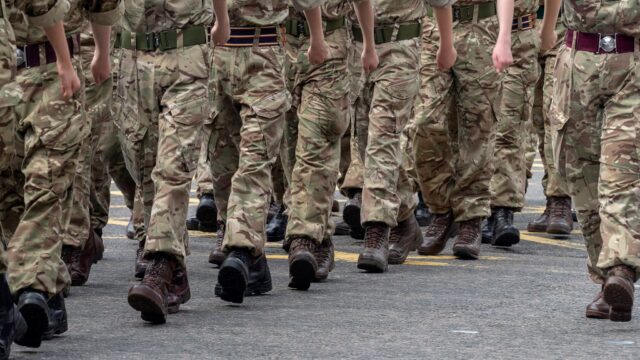Signing up to the UK military can lead to a long and fruitful career, while also providing key life skills that can be transferred to other occupations outside of the forces.
But situations can occur on duty that lead to long-lasting ramifications, with physical injury naturally a risk.
However, there are also increased mental health consequences that can occur from a life of service, as well as the danger of suffering from post-traumatic stress.
There have also been instances of harassment being highlighted within the forces and this is where military solicitors would be needed.
So, what can be done to protect the wellbeing of the UK military?
What do the UK military do?
The role of the armed forces, comprising of the British Army, Royal Air Force and Royal Navy, is primarily to protect the United Kingdom and its dependent territories.
It is the job of highly trained soldiers to defend against forces of enemies at a time of war, and the government can order the use of the military if there were to be an attack on another country.
But, there is much more to life in the forces than armed combat. Those in the forces usually work between 8.30am and 5pm Monday to Friday.
Day-to-day, military personnel can be working at their base, providing support to the police following a terrorist attack or to help prevent an attack, provide humanitarian aid across the globe, and undertake intense physical training.
More recently, troops have been deployed across the country to help cover loss of staff through strikes – with 1,200 military personnel required to help cover ambulance and border patrol staff absences in December 2022.
What situations occur?
Dr Jonathan Leach, Chair of NHS England’s Armed Forces and their Families Clinical Reference Group, explains how most people are able to transition back into civilian life upon leaving their role in the forces.
However, for some the experience of dealing with extremely traumatic experiences can lead to difficulties when making the transition.
As well as dealing with unthinkable traumatic circumstances, some will deal with harassment within the forces and the use of military solicitors may be required.
This experience for many can prove stressful as life in the service is different to civilian life and provides its own unique challenges. Many victims fear the consequences of making a complaint, but help is always available to victims and protection is offered by the Protection from Harassment Act 1997.
How can you manage stress?
There were 914,000 reports of work-related stress, depression or anxiety issues in Great Britain in 2021-22, a rise from 823,000.
Stress is natural and is a physical response to challenging situations. Learning to recognise stress and how to deal with it is vital when working in the forces.
It is firstly important to recognise the signs of stress, which can include; irritability, anxiety or panic attacks, difficulty making decisions, trouble concentrating, apathy, feelings of being out of control, and changes in behaviour such as low energy or loss of libido.
Next find the best methods to help you combat stress. Good practices include; focusing on the things you can control, finding time for regular exercise or you favour activity, simplifying the things in your life perhaps by making lists, laughing as often as possible, breathing deeply or using breathing technique apps, organising your daily life, and seeking out counselling.




